Below you will find a selection of key reports and strategy documents that have been published about the topic of resilience, with a focus on southern Africa. Please click on the images to navigate to the documents.
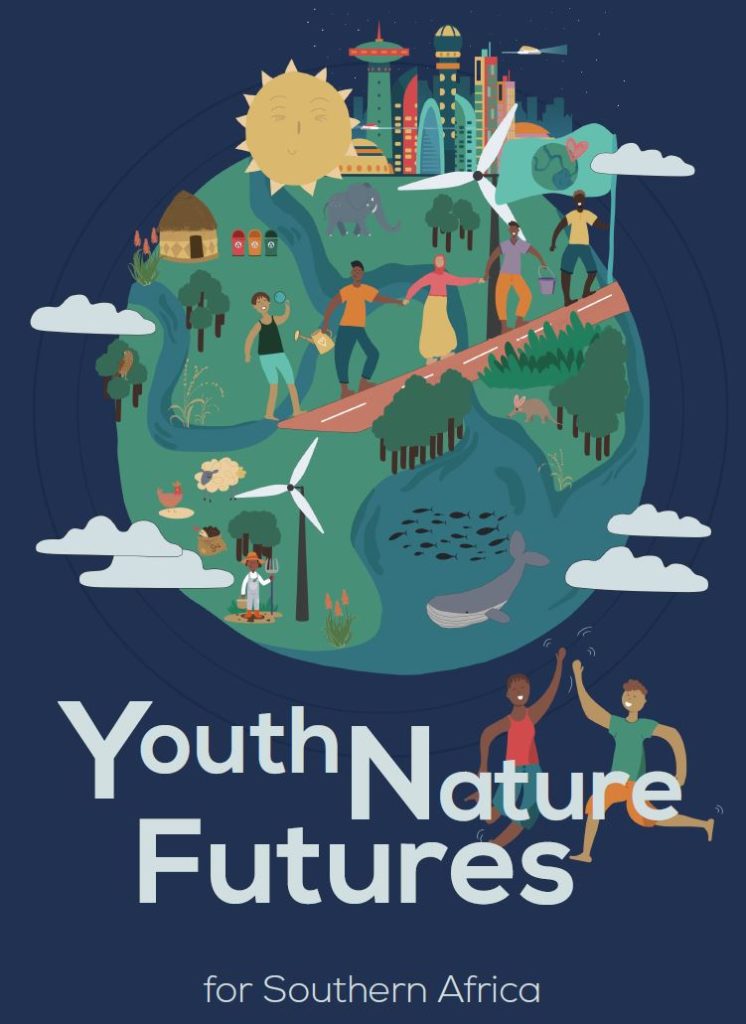
Youth Nature Futures for Southern Africa
Centre for Sustainability Transitions, 2022
What do sustainable and equitable “nature-futures” for people and planet look like? Visions for nature-futures are lacking, especially those inspired by the lives and perspectives of young people from the Global South. To capture visions of nature-futures as imagined by youth from southern Africa, the CST facilitated a series of online events in 2021 with youth organizations and networks operating in the region. These events provided space for young people to share their stories of environmental change and its impact on their lives. Participants were led through “futuring” exercises to stimulate discussion on what sustainable and just futures would look like to them. In addition, a competition was launched to promote the development of artworks and other creative outputs that represent youth nature-futures for southern Africa. To find out more, please download the report by clicking on the image on the right.
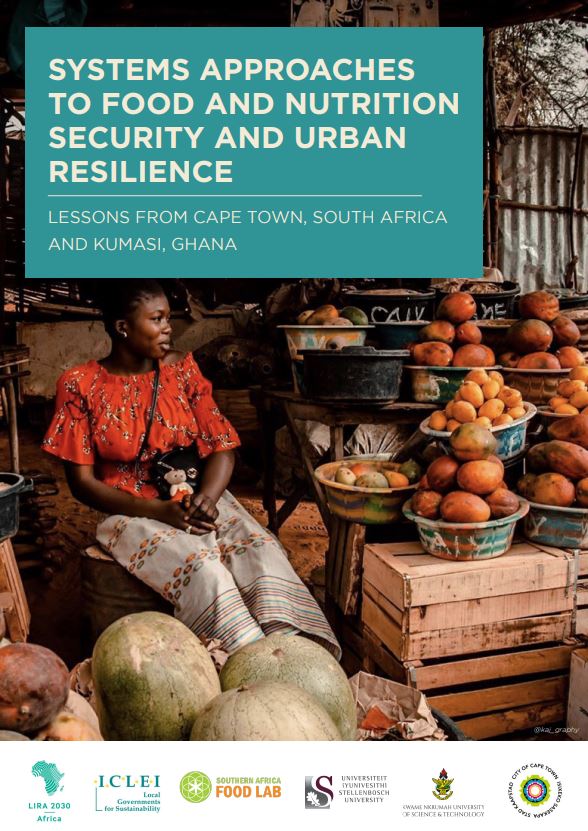
Systems approaches to food and nutrition security and urban resilience: Lessons from Cape Town, South Africa and Kumasi, Ghana
Kushitor S., Currie P., Drimie S., Badu M., Faragher T., Bhikoo J. and Cramer C., LIRA, 2020
As part of the Inclusive Metabolism project, researchers and city officials from Cape Town, South Africa, and Kumasi, Ghana, shared their perspectives on how improving food systems can have wider socio- economic benefits for society, building resilience to shocks. Important approaches included adopting a food-water-energy nexus approach and embracing the value of informality to build resilience in city food systems.
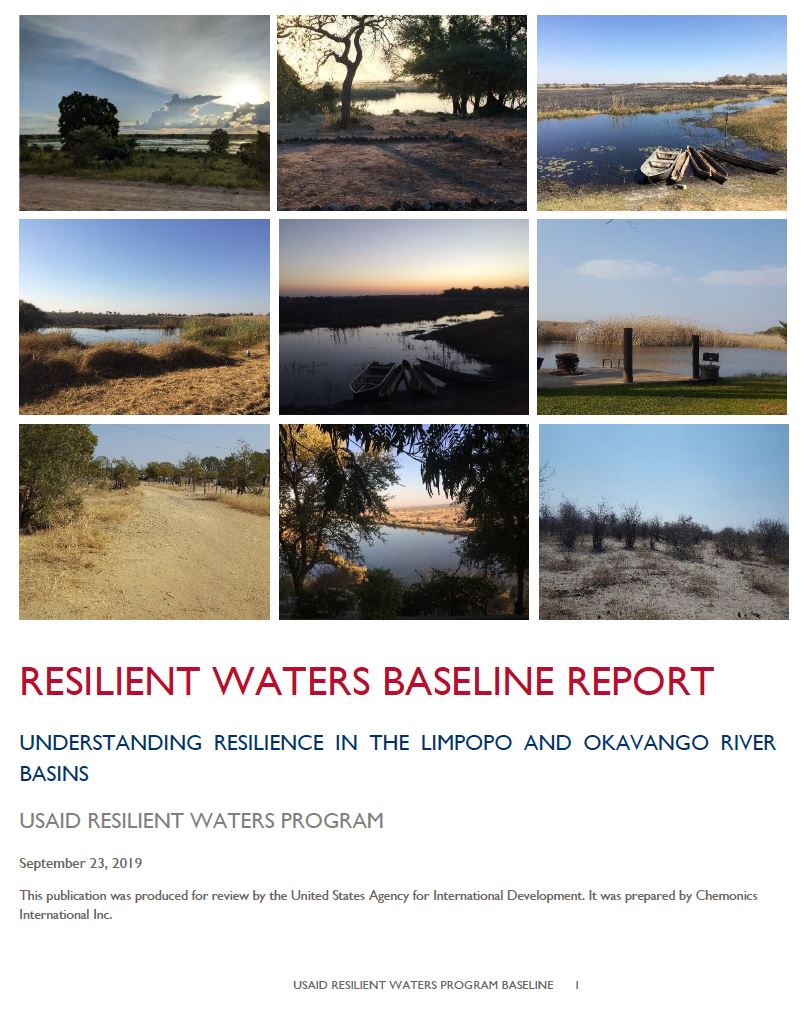
Resilient Waters baseline report: Understanding resilience in the Limpopo and Okavango river basins
USAID Resilient Waters Program, 2019
This report presents the results of a baseline study that aimed to explore how households from different communities across the Resilient Waters footprint understand resilience, how (and if) communities are building resilience, and what this means for the Resilient Waters Program. The results have uncovered considerable variations in how households are defining resilience, driven by the region’s varying government policies and capacities, ecological contexts, and demographic diversity.
Please note that there are a number of locally specific baseline site reports for different communities across Angola, Botswana, Mozambique, Namibia, South Africa, Zambia and Zimbabwe – accessible here. In some cases, these include local language translations.
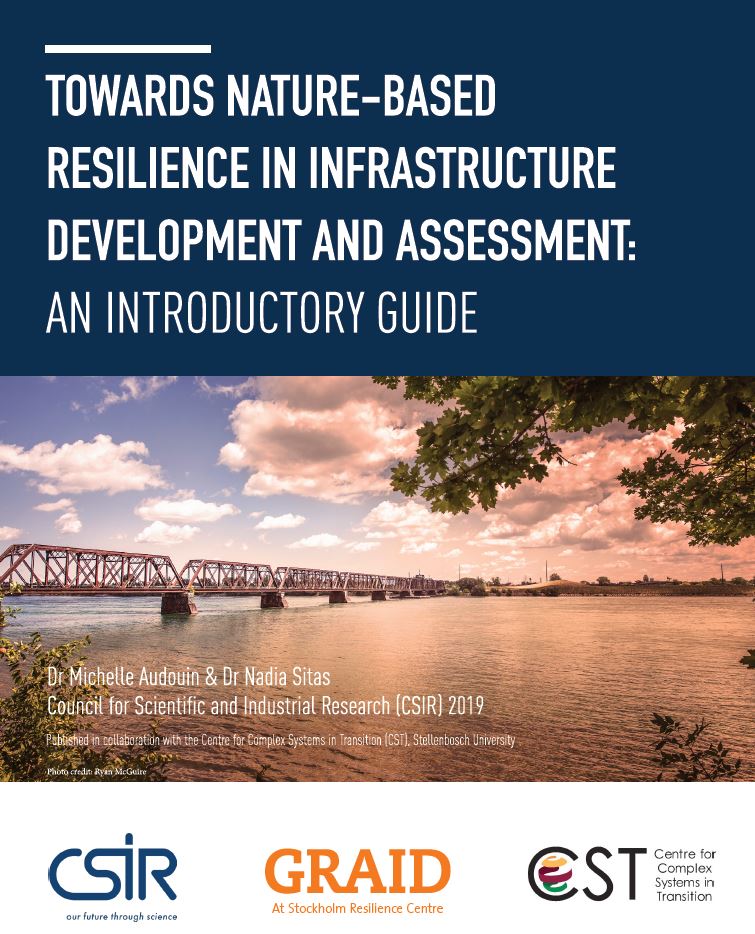
Towards nature-based resilience in infrastructure development and assessment: an introductory guide
Audouin, M. and Sitas, N., Council for Scientific & Industrial Research, 2019
The purpose of this guide is to provide an introduction to resilience thinking as it applies to the environmental assessment of infrastructure projects in sub-Saharan Africa. The guide primarily aims to assist development and environmental management practitioners and governmental decision-makers, as well as development funding agencies which support infrastructure projects on the continent. The focus is on the energy, transport and water sectors.
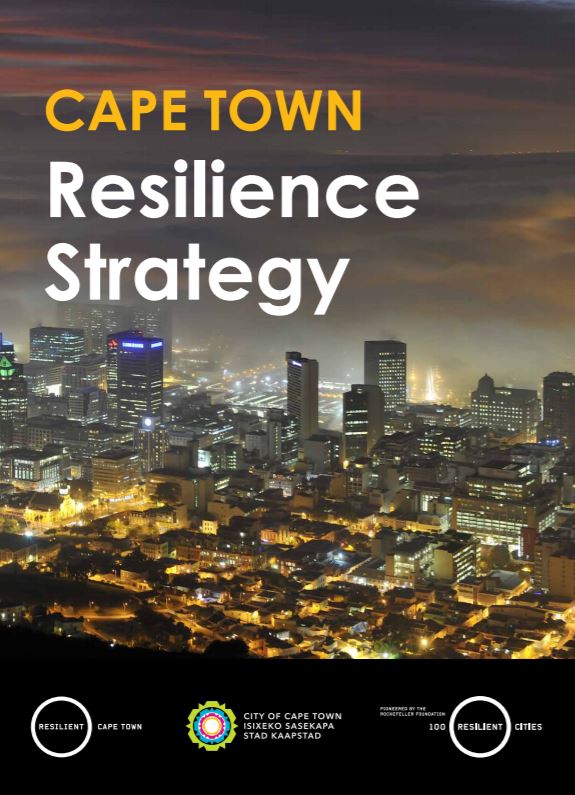
Cape Town Resilience Strategy
City Resilience Department, City of Cape Town, 2019
“The Cape Town Resilience Strategy is an innovative roadmap for a city that is simultaneously responding to the challenges and opportunities of globalisation,
urbanisation, rapid technological advancement and climate change. It is the culmination of years of effort and testing of resilience-practice methodologies in a range of ways, not least during Cape Town’s recent drought. From a governance perspective, this strategy implores us to improve our understanding of the interdependencies between shocks and stresses in our city and work on robust programmes to not only ameliorate their effects but find the resilience dividends within our actions.” – Craig Kesson, Chief Resilience Officer
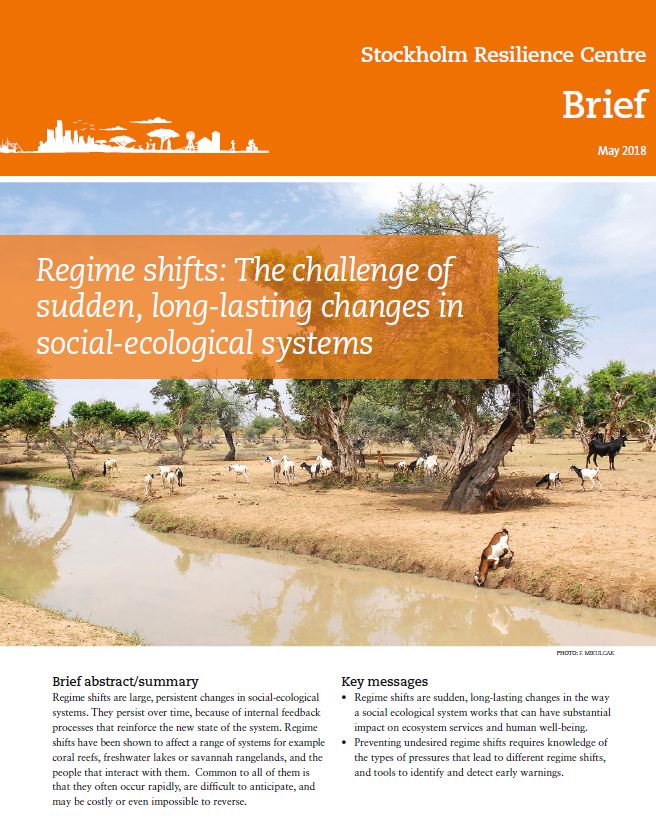
Regime shifts: The challenge of sudden, long-lasting changes in social-ecological systems
GRAID at Stockholm Resilience Centre, 2018
Regime shifts are large, persistent changes in social-ecological systems. They persist over time, because of internal feedback processes that reinforce the new state of the system. Regime shifts have been shown to affect a range of systems for example coral reefs, freshwater lakes or savannah rangelands, and the people that interact with them. Common to all of them is that they often occur rapidly, are difficult to anticipate, and may be costly or even impossible to reverse.
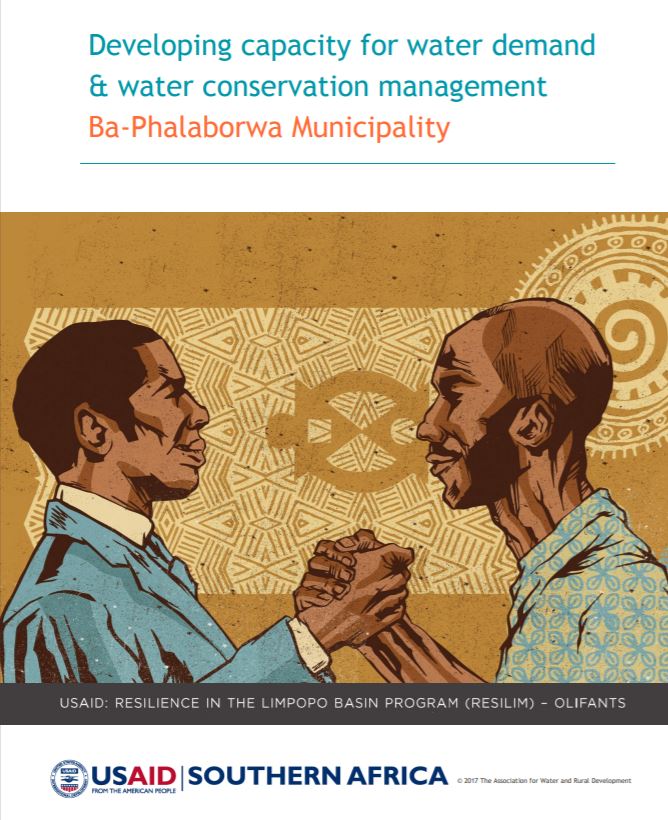
Developing capacity for water demand & water conservation management, Ba-Phalaborwa Municipality
The Association for Water and Rural Development & USAID Southern Africa, 2017
This technical report outlines objectives, outcomes, and recommendations of an assessment of water demand and conservation in the Ba-Phalaborwa municipality in South Africa. The project was led by The Association for Water and Rural Development (AWARD) as part of the “Resilience in the Limpopo basin (RESILIM) – Olifants” programme, funded by USAID.

High level retreat: Resilience in southern Africa by 2050
USAID Southern Africa, 2016
This report covers a High Level Retreat for selected senior government decision makers from Botswana, Lesotho, Mozambique, Namibia and South Africa. The objectives of the High Level Dialogue were to create greater awareness and understanding among key decision makers in the Okavango and Limpopo River Basin governments regarding the significant challenges that will be facing the region in the decades leading up to 2050 and to explore opportunities and options to mitigate the negative consequences of these trends.
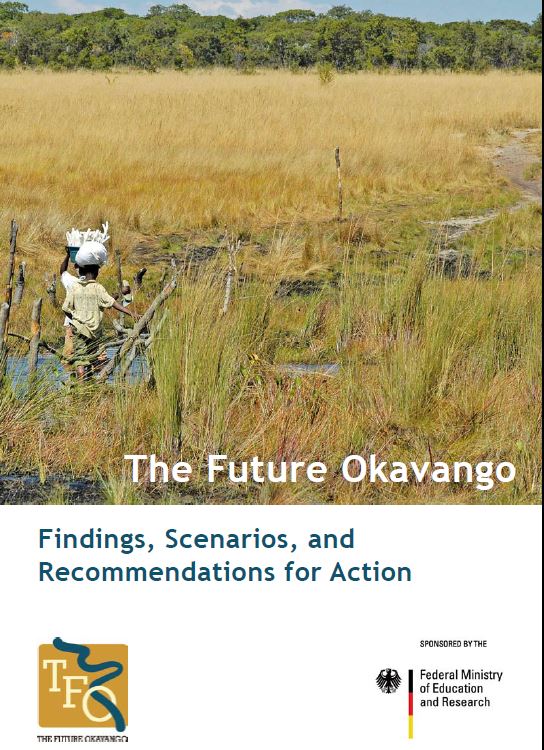
The future Okavango: Findings, scenarios, and recommendations for action
Pröpper, M., Gröngröft, A., Finckh, M., Stirn, S., De Cauwer, V., Lages, F., Masamba, W., Murray-Hudson, M., Schmidt, L., Strohbach, B., Jürgens, N., University of Hamburg 2015
Over a period of five years, 140 researchers from eight countries, 23 universities, and additional research institutions carried out the integrated transdisciplinary research project “The Future Okavango” within the basin of the Okavango-Cubango. The project aimed to provide data and scientific knowledge, scenarios (narratives based on future projections of various possible developmental pathways), and recommendations which will help to maintain the functioning of the ecosystems, their services, and the well-being of its population.
